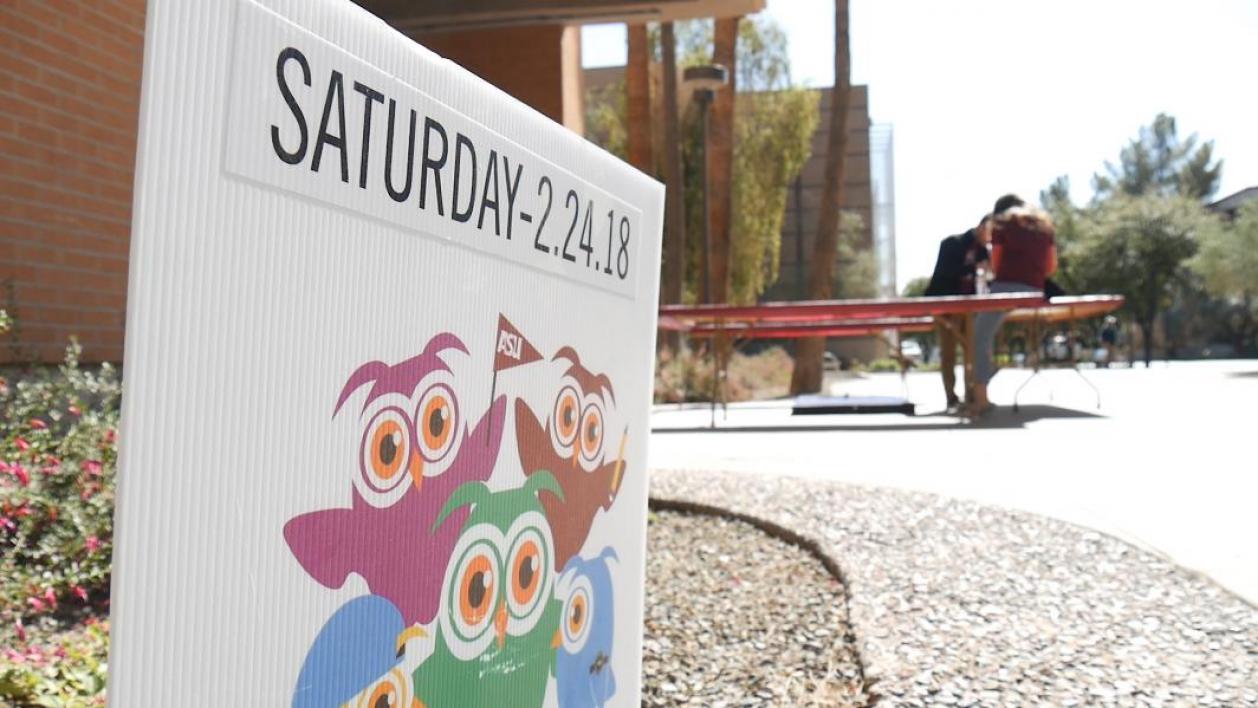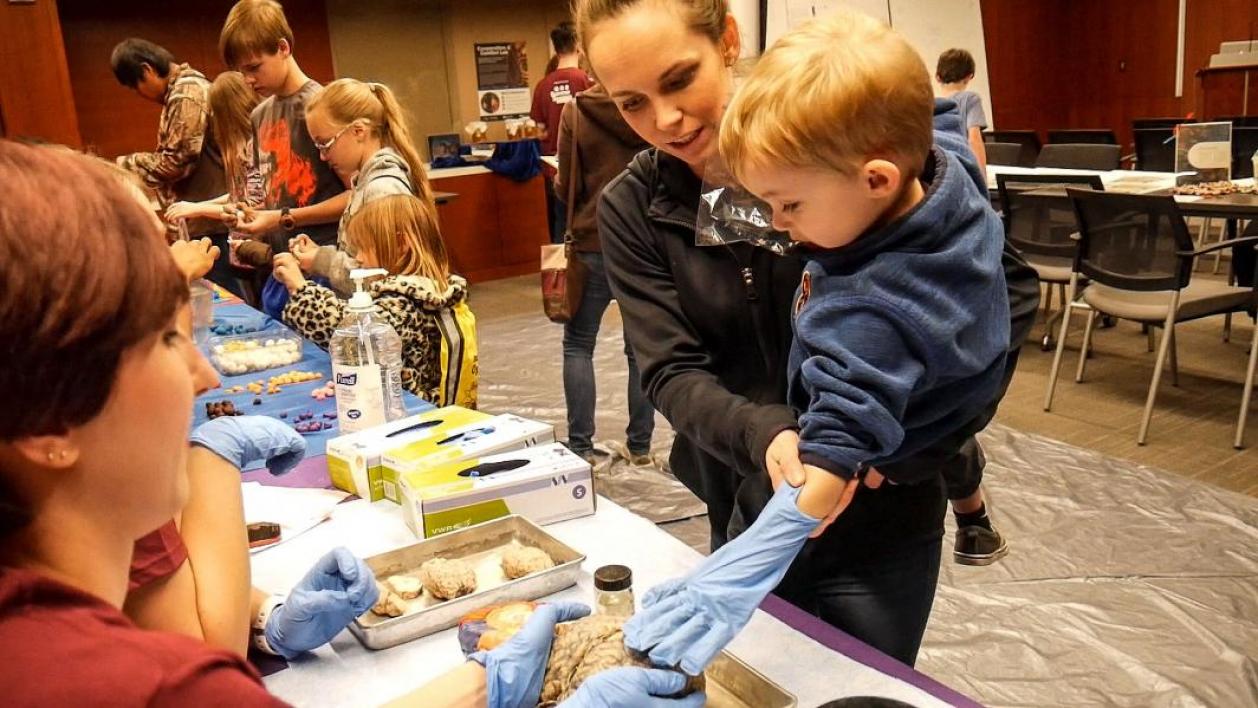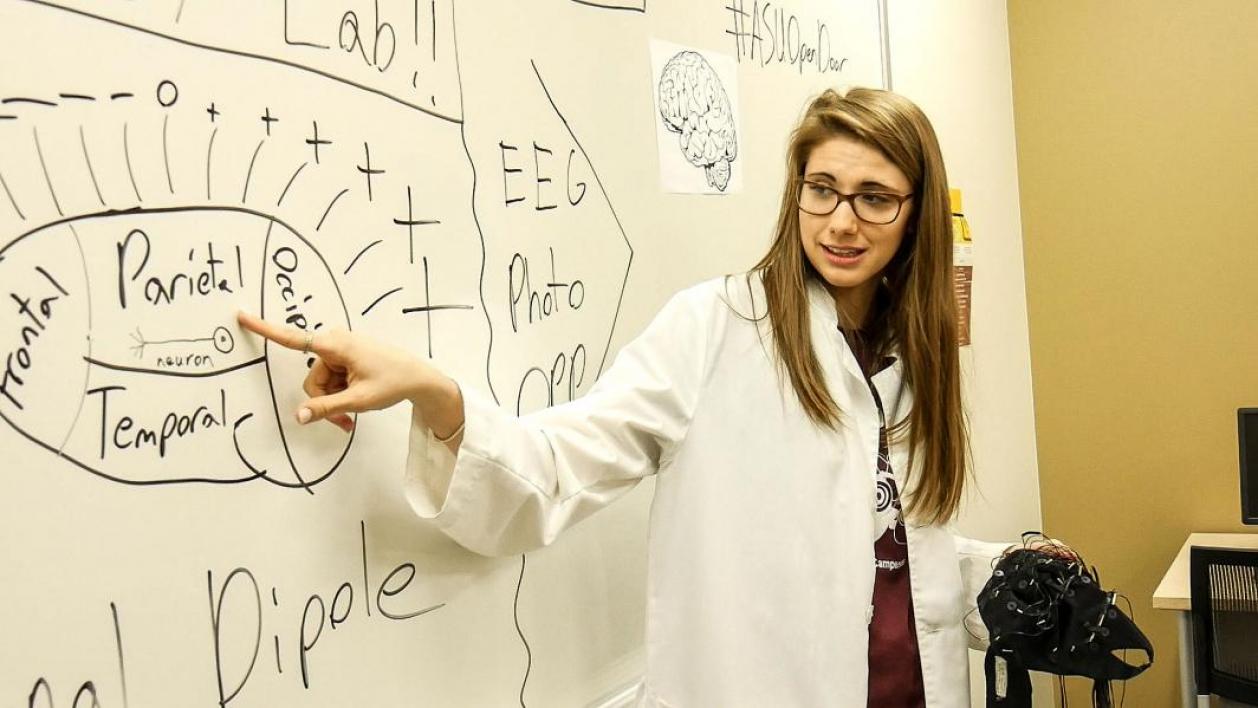From the lab to the sidewalk: Opening minds with psychology at ASU Open Door
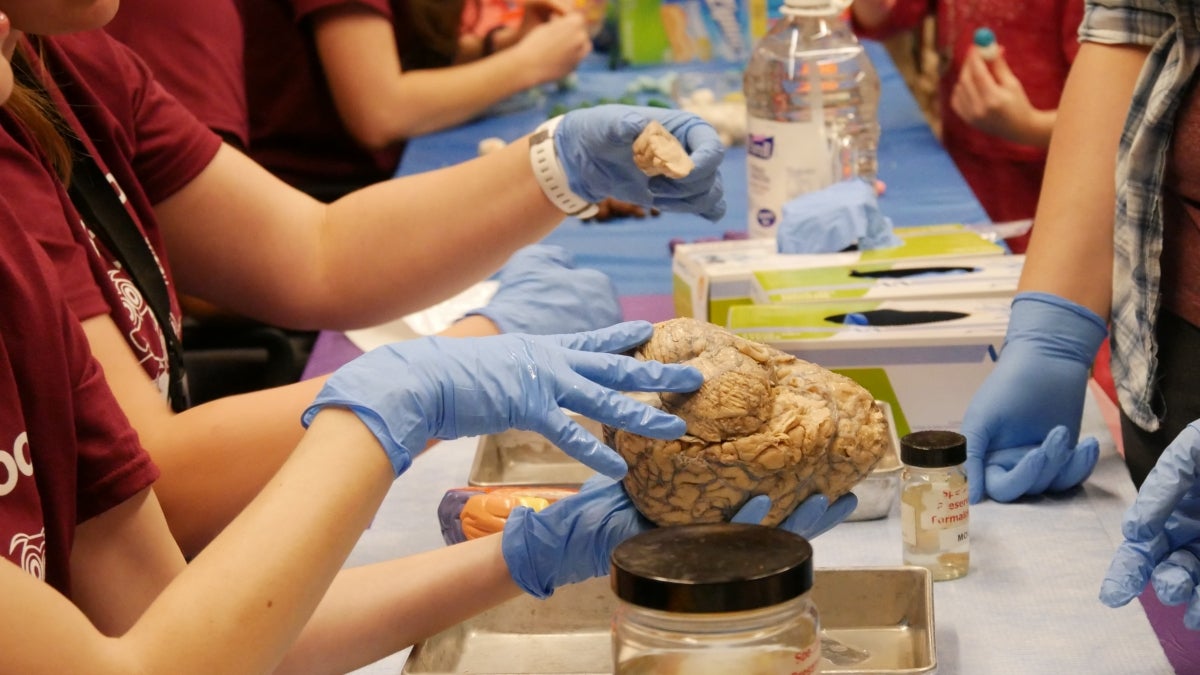
Students from Heather Bimonte-Nelson’s Neuroscience of Memory and Aging Lab at the 2018 ASU Open Door PSYCH Zone.
Last Saturday, Feb 24, Arizona State University’s Department of Psychology brought research from the laboratory to the sidewalk for the final installment of the ASU Open Door event series. The Tempe campus hosted over 15,000 participants of all ages and from all over the valley who experienced innovation first-hand.
The Department of Psychology hosted the “Psych Zone,” which included eight research groups. Visitors handled real brains, experienced challenges to how they thought about emotions and even had their brain’s electrical activity measured with electroencephalography (EEG).
In total, eight psychology research groups participated in Open Door:
• The Human Generosity Project, led by Athena Aktipis, assistant professor of psychology
• The Arizona Twin Project/Child Emotion Center, led by Kathryn Lemery-Chalfant, professor of psychology
• The Perception Ecological Action and Learning Lab, led by Michael McBeath, professor of psychology
• The new Learning and Development Lab, led by Viridiana Benitez, assistant professor of psychology
• The ASU Child Study Lab, led by Anne Kupfer, interim director
• The Shiota Psychophysiology Laboratory for Affective Testing (SPLAT) Lab, led by Lani Shiota, associate professor of psychology
• The Culture and Ecology Lab, led by Michael Varnum, assistant professor of psychology
• The Neuroscience of Memory and Aging Lab, led by Heather-Bimonte Nelson, professor of psychology
“We love being an active participant in our Arizona community,” said Steve Neuberg, Foundation Professor of psychology and chair of the ASU Department of Psychology. “We hope that through events like ASU Open Door, more people can become involved with and experience the wonderful world of psychology!”
More Science and technology

Podcast explores the future in a rapidly evolving world
What will it mean to be human in the future? Who owns data and who owns us? Can machines think?These are some of the questions…
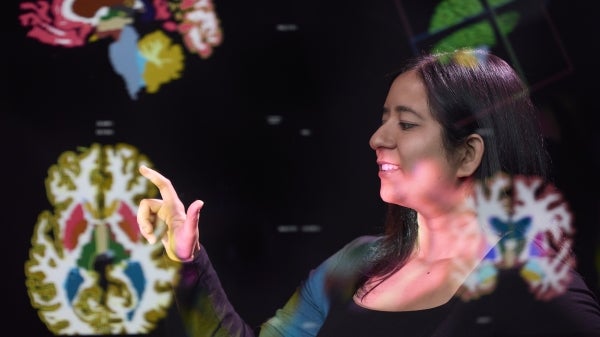
New NIH-funded program will train ASU students for the future of AI-powered medicine
The medical sector is increasingly exploring the use of artificial intelligence, or AI, to make health care more affordable and…
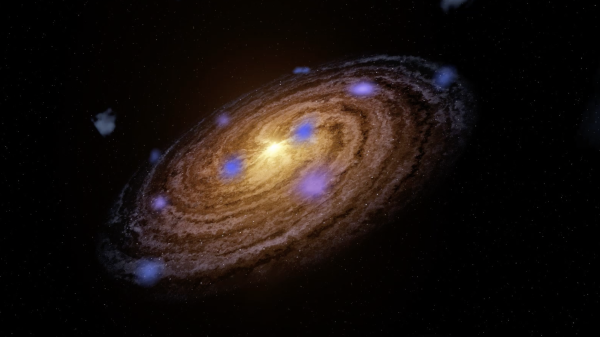
Cosmic clues: Metal-poor regions unveil potential method for galaxy growth
For decades, astronomers have analyzed data from space and ground telescopes to learn more about galaxies in the universe.…
